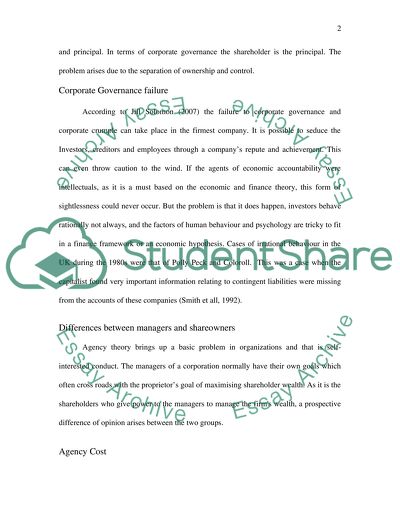Cite this document
(“The Nexus between agency theory and corporate governance Essay”, n.d.)
The Nexus between agency theory and corporate governance Essay. Retrieved from https://studentshare.org/miscellaneous/1506163-the-nexus-between-agency-theory-and-corporate-governance
The Nexus between agency theory and corporate governance Essay. Retrieved from https://studentshare.org/miscellaneous/1506163-the-nexus-between-agency-theory-and-corporate-governance
(The Nexus Between Agency Theory and Corporate Governance Essay)
The Nexus Between Agency Theory and Corporate Governance Essay. https://studentshare.org/miscellaneous/1506163-the-nexus-between-agency-theory-and-corporate-governance.
The Nexus Between Agency Theory and Corporate Governance Essay. https://studentshare.org/miscellaneous/1506163-the-nexus-between-agency-theory-and-corporate-governance.
“The Nexus Between Agency Theory and Corporate Governance Essay”, n.d. https://studentshare.org/miscellaneous/1506163-the-nexus-between-agency-theory-and-corporate-governance.


